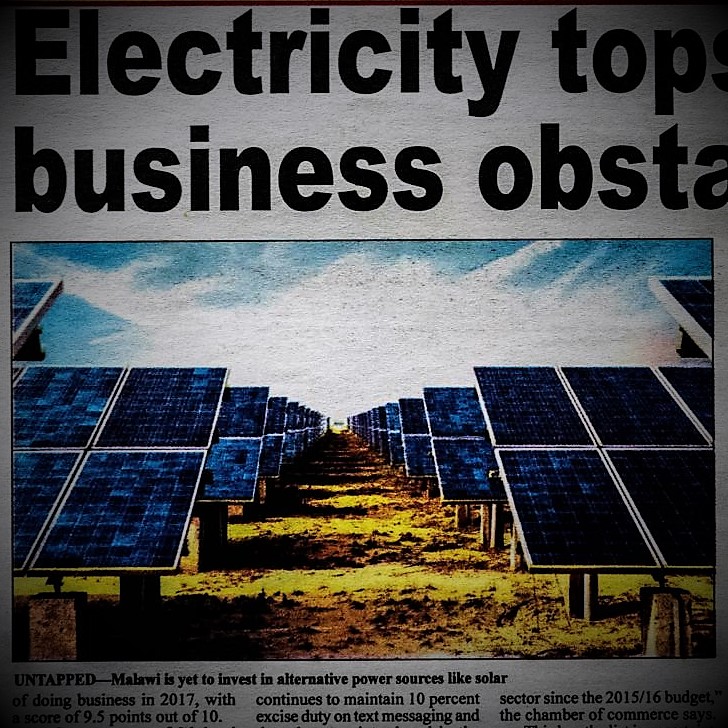
The Malawi Confederation of Chambers of Commerce and Industry (MCCCI) has rated intermittent power supply as the top obstacle to doing business in 2017.
In its Malawi Business Climate Survey (MBCS) for 2017, MCCCI says electricity is the most problematic factor, with a rating of 9.6 out of 10.
In 2016, electricity was the third most problematic factor with a rating of 8.7.
MCCCI says the high rating reflects lack of serious investments in energy.
“Businesses have had a lot of expectations from alternative sources of power planned by government such as the Kam’mwamba Coal-Fired Plant, solar power plants and stand by generators, among others.
“Cost of electricity has also been rated very high compared to 2016 due to maintenance of fixed charges such as Maximum Demand and Capacity Charges despite lack of available power which, during the time of the survey was less than 200MW [megawatts] against an installed capacity of 351MW,” part of the statement reads.
The survey has rated telecommunications services as the second biggest obstacle of doing business in 2017, with a score of 9.5 points out of 10.
“Government of Malawi continues to maintain 10 percent excise duty on text messaging and data that was introduced in the sector since the 2015/16 budget,” the chamber of commerce says.
Third on the list is uncertainty in economic and regulatory policies, with a rating of nine out of 10, and in fourth place is customs regulations, procedure and bureaucracy, with a rating of 8.9.
The survey has ranked domestic tax and non-tax reforms as well as domestic tax regulations, procedures and bureaucracy on position six and seven, respectively.
It says domestic tax and non–tax reforms continue to be rated as a major obstacle just like in previous years of 2016 and 2015. The reforms are usually announced during the presentation of a fiscal budget in Parliament.
“Domestic taxes and non-taxes are arguably becoming the main sources of government revenue due to slow-down in the budgetary support by donors and cooperating partners and, therefore, reforms tend to focus more on increasing revenue than serving businesses,” it says.
